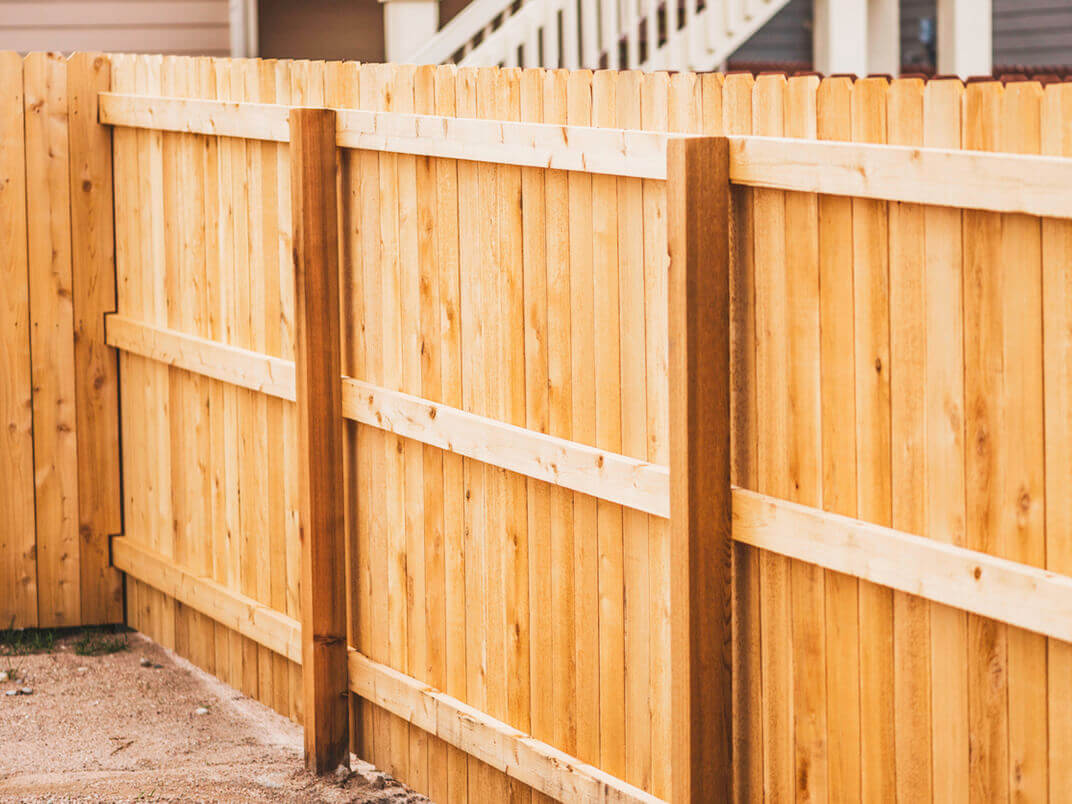All Categories
Featured
What Kinds of Fence Materials Are Available for Residential and Commercial Projects?
Fence is an essential element in both business and property properties, using protection, privacy, and aesthetic appeal. With numerous secure fencing materials available today, selecting the right option relies on your certain requirements, budget plan, and the objective of the fencing. Right here's an overview of the most popular fencing materials and their benefits to help you make an educated choice.- Wood Fencing. Timber is just one of the most standard and functional materials for secure fencing. Its all-natural charm makes it a popular option for residential tasks.
Advantages of Wood Fencing:
Aesthetic Allure: Offered in a variety of styles, consisting of picket, divided rail, and personal privacy fences. Adjustable: Can be repainted or tarnished to match your building's outside. Cost: Timber fencings are economical, particularly for smaller jobs. Considerations: Wood needs normal upkeep to avoid warping, pest, and rot damages.
- Vinyl Fence. Vinyl fence has gotten appeal for its resilience and low-maintenance top qualities, making it ideal for both commercial and household buildings.
Benefits of Plastic Fencing:
Resilience: Immune to rot, insects, and severe weather. Reduced Upkeep: No painting or staining called for; a basic wash keeps it looking brand-new. Range of Designs: Imitates the appearance of timber, offered in different colors and designs. Considerations: Higher preliminary expense compared to wood, but the longevity commonly offsets this expense.
- Light weight aluminum Fence. Aluminum is a light-weight yet solid material, generally utilized for attractive or security functions in both industrial and property setups.
Benefits of Light Weight Aluminum Fence:

Corrosion Resistance: Suitable for wet environments or areas near water. Customizable Layouts: Offered in a variety of shades and designs. Low Upkeep: Needs very little upkeep gradually. Considerations: While not as durable as steel, it offers an excellent equilibrium of toughness and design.
- Chain-Link Fencing. Chain-link fencing is a functional and economical selection, often made use of in business properties, colleges, and industrial parks.
Benefits of Chain-Link Fencing:
Cost: One of one of the most economical alternatives for large-scale jobs. Longevity: Stands up well to weather and heavy use. Exposure: Enables clear sightlines while offering safety. Considerations: Offers minimal personal privacy and may not suit all aesthetic choices.
- Wrought Iron Secure Fencing. Wrought iron is an ageless product known for its stamina and sophistication, frequently used in high end residential and industrial residential properties.
Advantages of Wrought Iron Fencing:
Longevity: Lasting and incredibly durable with appropriate upkeep. Customized Layouts: Can be made into intricate patterns for an extravagant look. Protection: Supplies robust protection versus intruders. Factors to consider: Needs regular maintenance to protect against corrosion and is generally a lot more pricey than other materials.
- Compound Secure fencing. Compound secure fencing combines timber fibers and plastic for a product that is both appealing and long lasting.
Benefits of Compound Fencing:

Eco-Friendly: Typically made from recycled products. Reduced Upkeep: Immune to rot, parasites, and weather damages. Visual Convenience: Simulates the look of natural wood without the maintenance. Factors to consider: Higher ahead of time cost contrasted to standard wood fences.
- Steel Fencing. Steel is a robust product that supplies exceptional security, making it a popular option for industrial and commercial projects.
Advantages of Steel Fencing:
Strength: Deals exceptional resilience and safety. Long life: Resistant to severe climate conditions and impacts. Modern Appearance: Can be powder-coated in different shades for a sleek look. Factors to consider: Higher price and weight contrasted to aluminum or chain-link choices.
- Bamboo Fence. Bamboo secure fencing is an eco-friendly choice, usually utilized in properties for a natural, exotic look.
Advantages of Bamboo Fencing:
Sustainability: Bamboo is a renewable resource. Aesthetic Allure: Offers a all-natural and one-of-a-kind look. Economical: Typically more economical than timber or vinyl. Considerations: Ideal matched for moderate climates, as extreme climate can cause damage.
Choosing the Right Material. When selecting fence materials, take into consideration these variables:
Purpose: Is the fence for privacy, security, or aesthetic appeals? Budget: Some materials, like chain-link or timber, are more affordable than premium choices like functioned iron. Upkeep: Low-maintenance products like vinyl or compound may conserve time and initiative in the long run. Setting: Factors like weather and direct exposure to wetness can affect the longevity of particular materials. Final thought. Whether you require fencing for a cozy yard or a sprawling business building, there's a product to suit your demands. By choosing the appropriate fence product, you can improve the protection, capability, and visual charm of your residential or commercial property while staying within your budget plan.
Latest Posts
Explore Save Big on Car Maintenance with Montclare Auto Repair’s Exclusive Deals
Published May 30, 25
1 min read
Check Out the Premier Auto Repair Discounts in Montclare, Chicago
Published May 24, 25
1 min read
Find Affordable Auto Repairs with Montclare’s Exclusive Service Specials
Published May 21, 25
1 min read
More
Latest Posts
Explore Save Big on Car Maintenance with Montclare Auto Repair’s Exclusive Deals
Published May 30, 25
1 min read
Check Out the Premier Auto Repair Discounts in Montclare, Chicago
Published May 24, 25
1 min read
Find Affordable Auto Repairs with Montclare’s Exclusive Service Specials
Published May 21, 25
1 min read